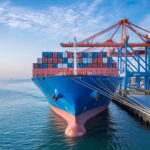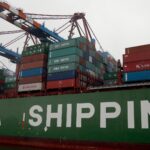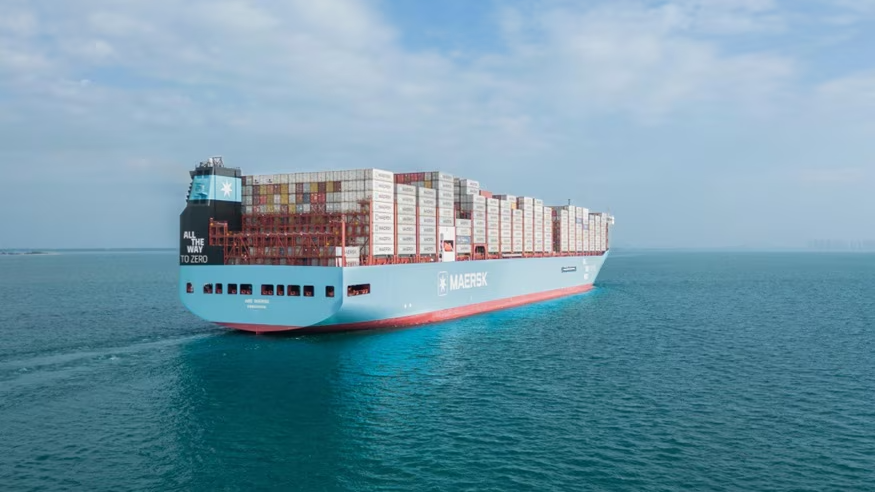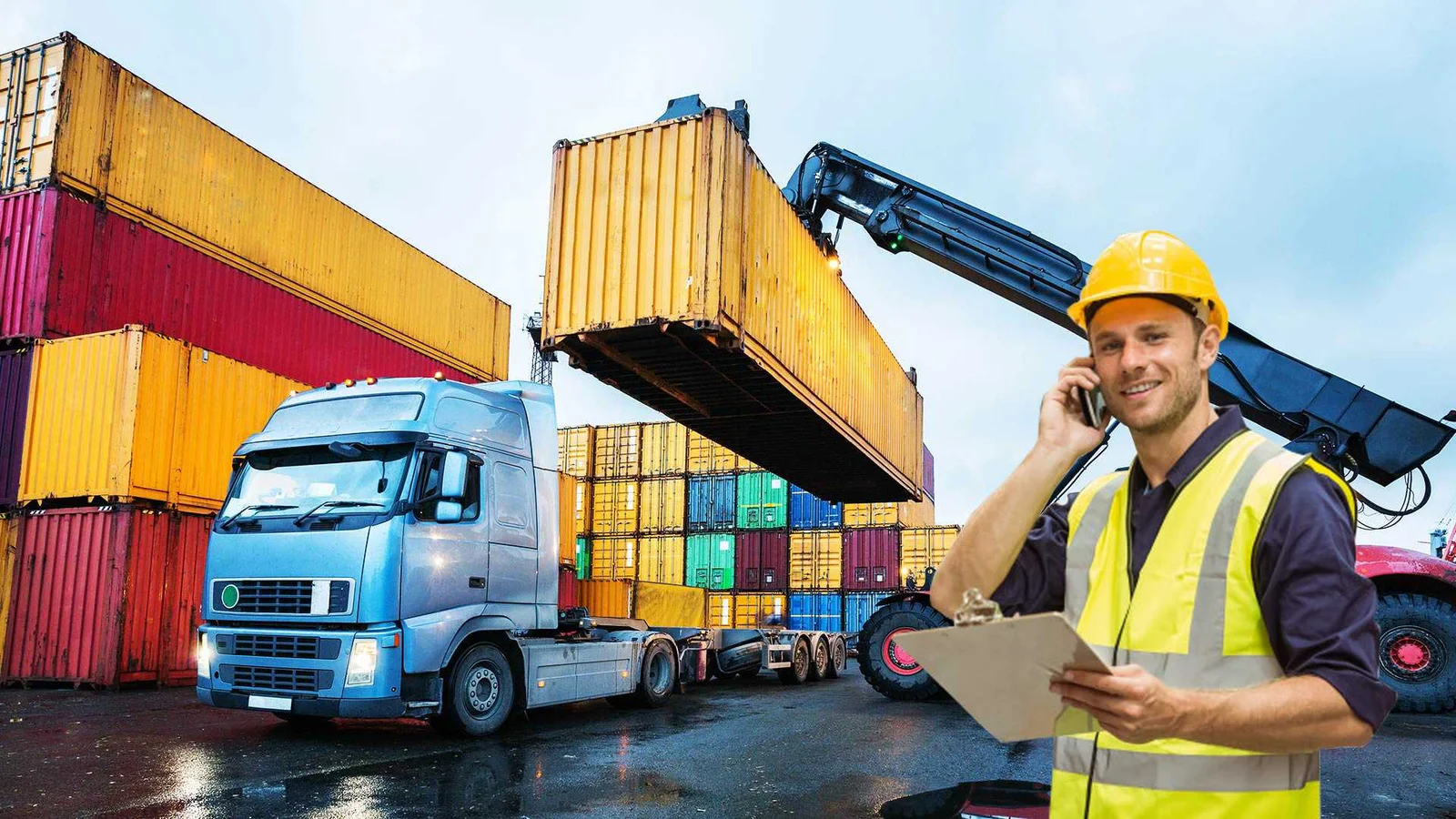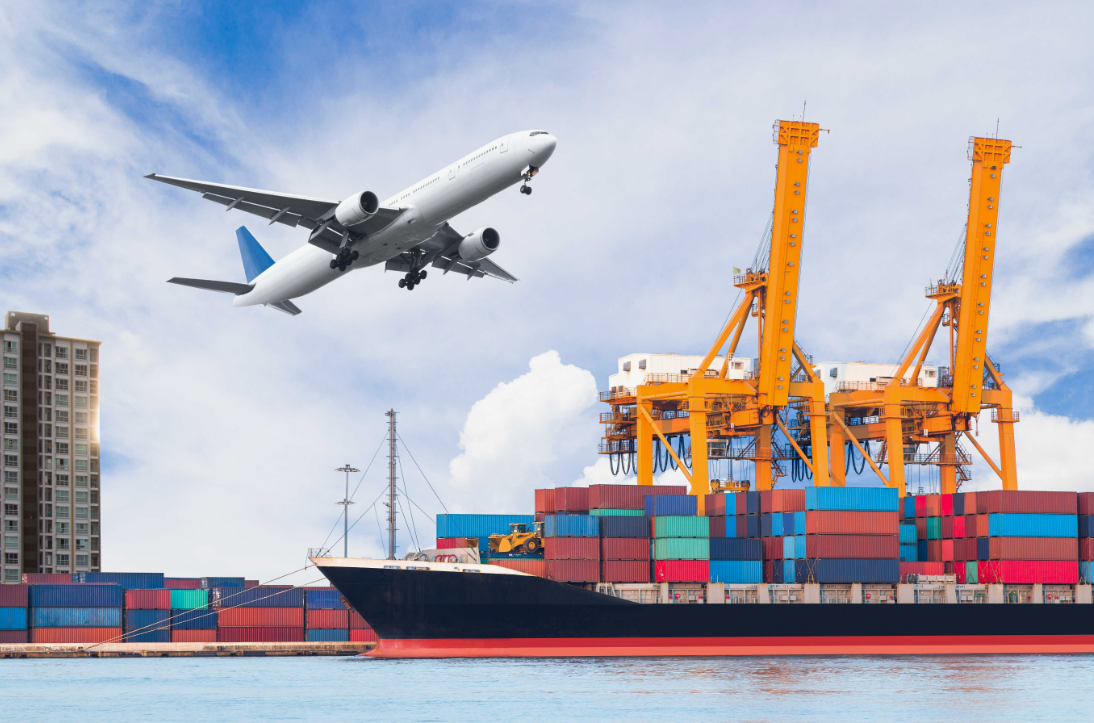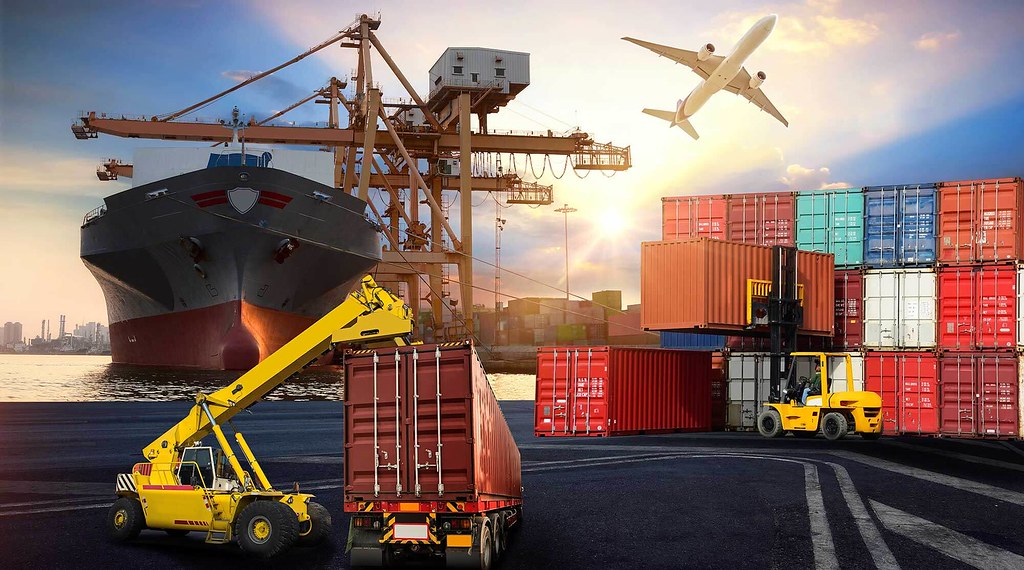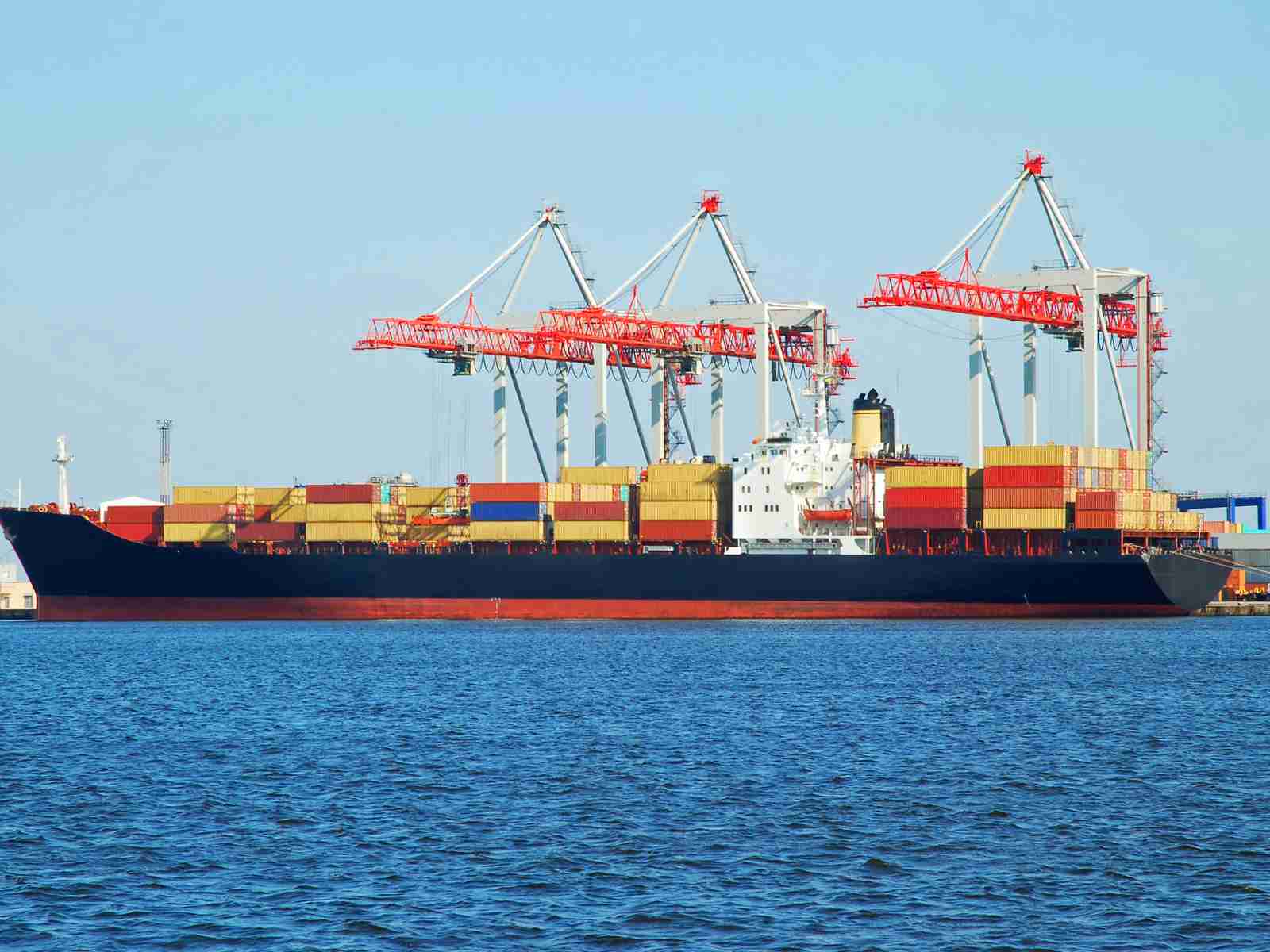Shipping goods from China to Saudi Arabia presents a multitude of opportunities for businesses looking to expand their market reach and tap into the growing demand in the Middle East. As one of the world’s leading manufacturing hubs, China offers a wide array of products at competitive prices, making it an attractive source for importers. However, navigating the complexities of international logistics, customs regulations, and shipping methods can be challenging.
This comprehensive guide is designed to provide you with essential insights into the shipping process, cost factors, and best practices for achieving the most efficient and cost-effective shipping experience. From understanding the various shipping methods available, such as Ocean Freight and Air Freight, to exploring the intricacies of customs clearance and cargo insurance, this guide aims to equip you with the knowledge needed to make informed decisions.

Whether you are a seasoned importer or new to international trade, the information presented here will help you optimize your logistics strategy and ensure that your shipments arrive safely and on time. With the support of reliable logistics partners like Dantful International Logistics, you can navigate the complexities of shipping from China to Saudi Arabia with confidence and ease.
Shipping Methods from China to Saudi Arabia

When it comes to importing goods from China to Saudi Arabia, understanding the available shipping methods is crucial for optimizing costs and ensuring timely delivery. Let’s explore the various options:
Ocean Freight
Ocean Freight remains one of the most cost-effective options for shipping goods internationally. It is particularly beneficial for large shipments:
- Full Container Load (FCL): This method involves renting an entire container, making it ideal for large volumes of goods. Shipping with FCL minimizes handling and reduces the risk of damage.
- Less than Container Load (LCL): If your shipment is smaller, LCL allows you to share container space with other shippers. This is a great way to save costs while still ensuring that your goods arrive safely. For more information, visit our Ocean Freight services page.
Air Freight
For businesses that require faster delivery, Air Freight is the go-to option.
- Standard Air Freight: This service is suitable for regular shipments, offering quick transit times and reliable service.
- Consolidated Air Freight: This option combines multiple shipments into one, helping to reduce costs while still maintaining speed. Dantful International Logistics can assist in choosing the best air freight option tailored to your needs.
Rail Freight
The China-Europe Railway is an emerging freight option that connects China and Europe, offering a balance between speed and cost. While primarily used for trade with Europe, it can also facilitate shipments to Saudi Arabia when combined with other methods.
Road Freight
Trucking within Asia is essential for delivering goods from inland areas to ports or airports. This method provides flexibility and efficiency for transporting goods before they embark on their long journey to Saudi Arabia.
Courier and Express Services
For urgent shipments, Courier and Express Services such as DHL, FedEx, UPS, and EMS ensure rapid delivery and tracking capabilities. These services are ideal for documents or small packages that require immediate attention.
Multimodal Freight
Multimodal Freight involves combining multiple shipping methods to optimize costs and transit times. For example, goods can be transported by sea and then transferred to trucks for final delivery. This method is particularly advantageous for complex logistics operations.
Bulk and Break Bulk Shipping
For transporting large machinery and heavy equipment, Bulk and Break Bulk Shipping is often necessary. These shipments require specialized handling and equipment due to their size and weight. Dantful International Logistics has the expertise to manage these types of shipments efficiently.
Intermodal Containers
Using Intermodal Containers allows for seamless transfer between transportation modes without the need to unpack and repack cargo. This method enhances efficiency and reduces the risk of damage during transit.
Temperature-Controlled Shipping
For businesses dealing with perishable goods, Temperature-Controlled Shipping is essential. This method ensures that products such as food and pharmaceuticals are transported in optimal conditions to maintain their quality. Dantful offers specialized solutions to manage temperature-sensitive shipments effectively.
Selecting the right shipping method from China to Saudi Arabia depends on your specific needs, including shipment size, urgency, and budget. Dantful International Logistics provides comprehensive services tailored to ensure your goods arrive safely and on time.
Shipping Process Overview

The shipping process from China to Saudi Arabia involves several key steps that ensure the safe and efficient transit of goods. Understanding each phase of this process can help businesses streamline their logistics and avoid potential pitfalls. Let’s delve into the essential components of the shipping process:
Packing
Packing is the first and arguably one of the most critical steps in the shipping process. Proper packing ensures that goods are protected from damage during transit. It involves selecting suitable materials to safeguard the items, including bubble wrap, foam, and sturdy boxes. For fragile or valuable items, additional protective measures may be necessary, such as customized crating. Additionally, all packages should be labeled clearly with relevant information, including destination addresses and handling instructions. Efficient packing not only prevents damage but also optimizes space within shipping containers, potentially reducing shipping costs.
Pickup
Once the goods are packed and ready for shipment, the next step is pickup. This involves arranging for a transportation provider to collect the cargo from the seller’s location. Depending on the logistics provider, this service may be included in the overall shipping package or arranged separately. It’s essential to coordinate the pickup to ensure that all items are collected on time, as delays can cascade through the shipping timeline. Dantful International Logistics can assist in coordinating timely pickups to ensure seamless transitions into the shipping process.
Delivery to Port
After the pickup, the goods are transported to the nearest shipping port for export. The delivery to port stage includes arranging for ground transportation, which could involve trucking or rail services, depending on the distance and logistics infrastructure. It’s crucial to ensure that the cargo arrives at the port well in advance of departure to avoid missing shipping deadlines. Effective communication with the logistics provider is key during this phase to monitor the status of the shipment and address any potential issues that may arise.
Free Warehousing
Sometimes, it may be necessary for cargo to be stored temporarily before shipping. Free warehousing services can provide a solution by allowing businesses to hold their goods at a facility without incurring immediate storage fees. This can be particularly beneficial during peak shipping times or when awaiting necessary documentation for customs clearance. Dantful International Logistics offers comprehensive warehouse solutions that include secure storage options, ensuring that your goods are maintained in optimal conditions until they are ready for shipment.
Customs Clearance
Prior to leaving China, the shipment must undergo customs clearance. This process involves preparing and submitting the necessary documentation to comply with both Chinese export regulations and Saudi Arabian import regulations. Ensuring that all required paperwork, such as commercial invoices and packing lists, is complete and accurate is essential to avoid delays or penalties. Working with a knowledgeable customs broker or freight forwarder can simplify this process, facilitating a more efficient customs clearance procedure.
Cargo Insurance
Investing in cargo insurance is highly recommended to protect against potential losses or damages during transit. Various factors can pose risks, including transit delays, accidents, or natural disasters. Cargo insurance provides peace of mind by covering financial losses associated with these risks. Dantful International Logistics offers tailored cargo insurance solutions, allowing businesses to choose coverage that aligns with the value of their shipments and their risk tolerance.
Cargo Supervision
Once the goods are en route, cargo supervision becomes vital. This involves monitoring the shipment throughout its journey to ensure that it is handled correctly and safely. Logistics providers often employ tracking technologies to provide real-time updates on the cargo’s status. This level of oversight helps identify potential issues early, allowing for prompt intervention and minimizing disruptions. Having a dedicated logistics partner like Dantful International Logistics can enhance this supervision, as they are equipped with the resources and expertise to manage logistics effectively.
Unloading and Distribution
Upon arrival at the destination port in Saudi Arabia, the process culminates with unloading and distribution. This step involves discharging the cargo from the shipping vessel and ensuring that it is properly accounted for against delivery documents. Following unloading, goods are then transported to their final destination, which may involve additional logistics services such as local trucking or last-mile delivery. Efficient unloading and distribution are crucial in ensuring that goods reach their intended recipients without delay.
In summary, the shipping process from China to Saudi Arabia encompasses several stages, each requiring careful planning and execution. By understanding and effectively managing these components, businesses can optimize their shipping operations and enhance overall efficiency. Dantful International Logistics is committed to providing a comprehensive suite of logistics services to support each phase of the shipping process, ensuring a seamless experience from packing to final delivery. For more information or to get started with your shipping needs, please contact us today.
Cost Factors Shipping from China to Saudi Arabia
When shipping goods from China to Saudi Arabia, various cost factors come into play that can significantly influence the overall expense of your logistics operation. Understanding these factors can help you make informed decisions to optimize your shipping strategy. Here are the primary cost considerations:
Type of Cargo
The type of cargo being shipped greatly affects shipping costs. Different products may require specific handling, packaging, or transportation methods. For example, hazardous materials often incur higher fees due to the necessary compliance with safety regulations. Additionally, fragile items may require specialized packaging to prevent damage during transit, impacting the cost as well. Knowing your cargo type can help you choose the most appropriate shipping method and provider.
Urgency and Delivery Time
The urgency of your shipment will also play a crucial role in determining costs. Expedited shipping options, such as Air Freight, are typically more expensive than standard options like Ocean Freight. If you need your goods delivered quickly, you will likely pay a premium for faster transit times. Conversely, if you have more flexibility in your timeline, opting for slower shipping methods can help you reduce costs significantly.
Shipping Distance
While the distance between China and Saudi Arabia is relatively fixed, the specific routes taken can influence shipping costs. For instance, some shipping lines may offer more direct routes, leading to shorter transit times and potentially lower costs. Understanding the different shipping routes and choosing the most economical option can help optimize your logistics expenses.
Volume and Weight of Shipment
Shipping costs are often calculated based on the volume and weight of your cargo. In logistics, this is commonly referred to as the Dimensional Weight Pricing model. Heavier and bulkier shipments generally incur higher charges. Therefore, it’s essential to accurately measure and weigh your shipment to avoid unexpected charges. Additionally, consolidating smaller shipments into larger ones can help you achieve economies of scale and reduce per-unit shipping costs.
Additional Services
Opting for additional services can also influence the overall cost of shipping. For example, purchasing insurance for your cargo can add to your shipping expenses, but it provides peace of mind by protecting your investment against loss or damage during transit. Similarly, enhanced tracking services may come at an extra cost but can provide real-time updates on your shipment’s status, keeping you informed throughout the process. It’s crucial to weigh these additional services against their potential benefits to find a balance that meets your needs.
Seasonal Variations
Costs can fluctuate throughout the year due to seasonal variations in demand. For instance, during peak shipping seasons such as holidays or major sales events, rates may rise due to increased demand for shipping services. Additionally, factors like weather conditions and port congestion can also impact shipping costs during certain times of the year. Being aware of these seasonal trends can help you plan your shipments more effectively, potentially allowing you to avoid higher rates during peak times.
Dantful International Logistics offers tailored solutions that take these factors into account, ensuring you receive the most cost-effective and efficient shipping services. For a detailed consultation on your logistics needs, feel free to reach out to our team.
Shipping From China to Middle East Countries:
- Shipping from China to Saudi Arabia
- Shipping from China to UAE
- Shipping from china to KUWAIT
- Shipping From China To EGYPT
- Shipping from China to Bahrain
- Shipping From China To Jordan
- Shipping From China To Israel
- Shipping from China to Qatar
- Shipping From China To IRAQ
- Shipping from China to Iran
Best Practices for the Cheapest Shipping from China to Saudi Arabia
To maximize cost-efficiency when shipping goods from China to Saudi Arabia, it’s essential to implement best practices that align with your business needs. Here are some strategies to consider for achieving the cheapest shipping rates:
Choosing the Right Shipping Method
Selecting the right shipping method is crucial for balancing cost, urgency, and cargo type. For example, if you are shipping bulky goods that do not require immediate delivery, Ocean Freight is often the most economical option. Conversely, if your shipment contains high-value items that must arrive quickly, Air Freight may be justified despite its higher cost. Assessing your shipment’s specific requirements in conjunction with your budget can help you determine the most suitable shipping method, ensuring you get the best value for your money.
Negotiating Shipping Rates
When it comes to shipping, negotiating rates can yield significant savings. Collaborating with reputable freight forwarders like Dantful International Logistics can be particularly beneficial. These professionals have established relationships with shipping carriers and can leverage this expertise to negotiate better rates on your behalf. Additionally, having a clear understanding of your shipping volume and frequency can provide you with leverage in negotiations, leading to lower costs overall.
Avoiding Peak Shipping Times
Avoiding peak shipping times is another effective way to save on transportation costs. Shipping rates typically surge during busy seasons, such as holidays or special sales periods, due to increased demand for cargo space. If your shipping schedule allows for flexibility, consider planning your shipments during off-peak times to take advantage of lower rates. Monitoring industry trends and being aware of peak periods can help you strategically time your shipments for maximum cost savings.
Shipping in Large Quantities
Shipping in large quantities can reduce costs per unit, as many carriers offer discounted rates for bulk shipments. By consolidating your orders and sending larger shipments less frequently, you can capitalize on economies of scale. Additionally, this practice minimizes handling fees and reduces the likelihood of damage, as fewer transfers between modes of transport are required. However, it’s essential to balance this approach with storage capabilities and cash flow considerations.
Proper Documentation and Customs Compliance
Accurate documentation and customs compliance are fundamental to avoiding unexpected costs and delays. Ensuring that all necessary paperwork, including shipping invoices and packing lists, is completed accurately can help facilitate a smoother customs clearance process. Utilizing Incoterms is particularly helpful in clarifying responsibilities between buyers and sellers, ensuring that both parties understand their obligations regarding shipping, insurance, and duties. This clarity can prevent misunderstandings and additional charges associated with miscommunication.
Dantful International Logistics is dedicated to helping clients navigate these complexities, providing tailored solutions to ensure your logistics needs are met efficiently and cost-effectively.
Customs Clearance from China to Saudi Arabia
Customs clearance is a critical step in the shipping process, particularly when importing goods from China to Saudi Arabia. Understanding the customs requirements and procedures is essential for ensuring a smooth and efficient transit of your goods while avoiding potential delays and additional costs. Here’s a comprehensive overview of what you need to know about customs clearance for shipments from China to Saudi Arabia:
Understanding Customs Regulations
Every country has its own set of customs regulations that govern the importation of goods. In Saudi Arabia, the Saudi Customs Authority is responsible for establishing and enforcing these regulations. It’s crucial to familiarize yourself with the specific requirements, including duties, taxes, and prohibited items, to ensure compliance. Understanding these regulations upfront can help you avoid any unexpected complications during the clearance process.
Required Documentation
To facilitate customs clearance, you will need to prepare and submit various documents. Commonly required documents include:
- Commercial Invoice: This document outlines the transaction details, including the value of the goods, seller and buyer information, and item descriptions.
- Packing List: This document lists the contents of each package, including dimensions and weights, assisting customs officials in verifying the shipment.
- Bill of Lading: This key document serves as proof of shipment and outlines the terms of transport.
- Certificate of Origin: This document certifies the origin of the goods, which can affect duty rates.
- Import Licenses: Depending on the nature of the goods, specific import permits may be required.
Working with a reliable freight forwarder, such as Dantful International Logistics, can help ensure that you have all necessary documents in order and submitted timely, thus expediting the customs clearance process.
Duties and Taxes
When importing goods into Saudi Arabia, you may be subject to various import duties and taxes. The rate of duty is dependent on the classification of the goods and their declared value. Generally, the customs duty rate in Saudi Arabia ranges from 5% to 20%, with certain goods potentially subject to higher rates. Additionally, a Value Added Tax (VAT) of 15% is charged on most imported goods.
It’s essential to calculate these costs in advance to understand the total expenses associated with your shipment. Accurate valuation of your goods is critical, as under-declaring their value can lead to penalties and delays.
Customs Inspection
Customs inspections are a standard part of the clearance process. Saudi Customs may randomly select shipments for inspection to verify the accuracy of documentation and ensure compliance with regulations. Factors such as shipment type, value, and country of origin can influence the likelihood of inspection. Preparing your documentation meticulously and ensuring compliance can help minimize the chances of delays during this process.
Working with Customs Brokers
Engaging a licensed customs broker can streamline the customs clearance process. Customs brokers are professionals who possess in-depth knowledge of customs regulations and procedures. They can assist in completing documentation, calculating duties and taxes, and communicating with customs officials on your behalf. Dantful International Logistics offers comprehensive customs clearance services, ensuring that your shipments comply with Saudi Arabia’s regulations and reach their destination without unnecessary delays.
Post-Clearance Compliance
Once your goods have cleared customs, it’s important to maintain compliance with any subsequent regulations. Keep all documentation related to the import transaction for record-keeping and potential audits. Additionally, be aware of any local regulations that may apply once the goods are in Saudi Arabia, including labeling requirements, safety standards, and other compliance measures.
By preparing the necessary documentation, calculating duties and taxes accurately, and potentially working with a customs broker, you can ensure a smooth and efficient shipping experience. Dantful International Logistics is here to assist you throughout the customs clearance process, providing expert guidance and support to facilitate your shipments.
Dantful International Logistics Services:
- Dantful Ocean Freight Services
- Air Freight From China
- Amazon FBA Freight Forwarding
- WAREHOUSE Services
- One-Stop Customs Clearance Solution
- Cargo Insurance Services in China
- DDP Shipping Services By Dantful Logistics
- Out of Gauge Cargo Transportation Shipping Services
FAQs
When shipping goods from China to Saudi Arabia, various questions often arise regarding the process, costs, regulations, and best practices. Below are some frequently asked questions (FAQs) that can help clarify common concerns and provide valuable insights for importers.
1. What are the main shipping methods available from China to Saudi Arabia?
There are several primary shipping methods available, including:
- Ocean Freight: Ideal for large shipments, it includes Full Container Load (FCL) and Less than Container Load (LCL) options.
- Air Freight: Best for urgent deliveries, offering faster transit times at a higher cost.
- Rail Freight: An emerging option, particularly for shipments heading to Europe, but can also integrate into routes to Saudi Arabia.
- Courier Services: Companies like DHL, FedEx, and UPS provide express shipping for smaller packages requiring quick delivery.
2. How are shipping costs determined?
Shipping costs from China to Saudi Arabia are influenced by several factors, including:
- Type of Cargo: Different items have varying handling and shipping requirements.
- Volume and Weight: Heavier and bulkier shipments typically cost more to transport.
- Urgency: Faster shipping methods, like air freight, are more expensive than slower options.
- Additional Services: Services such as insurance, tracking, and warehousing can also contribute to overall shipping costs.
3. What documentation is required for customs clearance?
For customs clearance, you will need several key documents, including:
- Commercial Invoice: Details the transaction and value of the goods.
- Packing List: Outlines what is included in the shipment.
- Bill of Lading: Acts as proof of shipment and outlines the shipping terms.
- Certificate of Origin: Certifies the origin of the goods, potentially affecting duty rates.
- Import Licenses: May be required depending on the nature of the goods.
4. How can I ensure that my goods are properly insured during shipping?
To protect your investment, you can purchase cargo insurance. This coverage typically covers loss or damage to goods during transit. When selecting cargo insurance, consider the value of the items being shipped and the associated risks. A logistics provider like Dantful International Logistics can assist you in obtaining appropriate insurance coverage tailored to your shipment needs.
5. What are Incoterms, and why are they important?
Incoterms (International Commercial Terms) are standardized terms used in international trade to define the responsibilities of buyers and sellers regarding the shipping, insurance, and tariffs of goods. They clarify who is responsible for various aspects of the shipping process, including transportation, risks, and costs. Understanding and correctly using Incoterms can prevent misunderstandings and disputes throughout the logistics process.
6. How can I avoid delays during the shipping process?
To minimize delays when shipping from China to Saudi Arabia, consider the following tips:
- Prepare Documentation in Advance: Ensure all paperwork is complete and accurate before shipping.
- Choose Off-Peak Shipping Times: Avoid shipping during peak seasons to reduce congestion and potential delays.
- Work with Experienced Logistics Providers: Partnering with a reputable freight forwarder like Dantful International Logistics can help navigate the complexities of shipping and customs clearance.
7. Can I track my shipment in real-time?
Yes, most logistics providers offer tracking services that allow you to monitor your shipment in real-time. By utilizing tracking technology, you can receive updates on the status of your cargo, including its location and estimated delivery time. This transparency helps you stay informed throughout the shipping process.
8. What should I do if my goods are damaged during transit?
If your goods arrive damaged, it’s essential to take immediate action:
- Document the Damage: Take clear photographs and detailed notes about the condition of the goods upon arrival.
- Notify Your Freight Forwarder or Logistics Provider: Inform them of the damages as soon as possible, as they can assist with filing claims.
- File an Insurance Claim: If you have cargo insurance, you may be eligible for compensation for the damaged goods. Be sure to follow the claim process outlined by your insurance provider.
Understanding these frequently asked questions can help you navigate the complexities of the shipping process with greater confidence. If you have any further inquiries or need assistance with your logistics needs, feel free to reach out to Dantful International Logistics for expert guidance and support.

Young Chiu is a seasoned logistics expert with over 15 years of experience in international freight forwarding and supply chain management. As CEO of Dantful International Logistics, Young is dedicated to providing valuable insights and practical advice to businesses navigating the complexities of global shipping.
The other language versions of this article
- أرخص الشحن من الصين إلى المملكة العربية السعودية
- Goedkoopste verzending van China naar Saoedi-Arabië
- Expédition la moins chère de la Chine vers l’Arabie Saoudite
- Günstigster Versand von China nach Saudi-Arabien – Dantful
- Spedizione più economica dalla Cina all’Arabia Saudita
- El envío más barato de China a Arabia Saudita
- Frete mais barato da China para a Arábia Saudita
- Самая дешевая доставка из Китая в Саудовскую Аравию
- Çin’den Suudi Arabistan’a en ucuz nakliye

